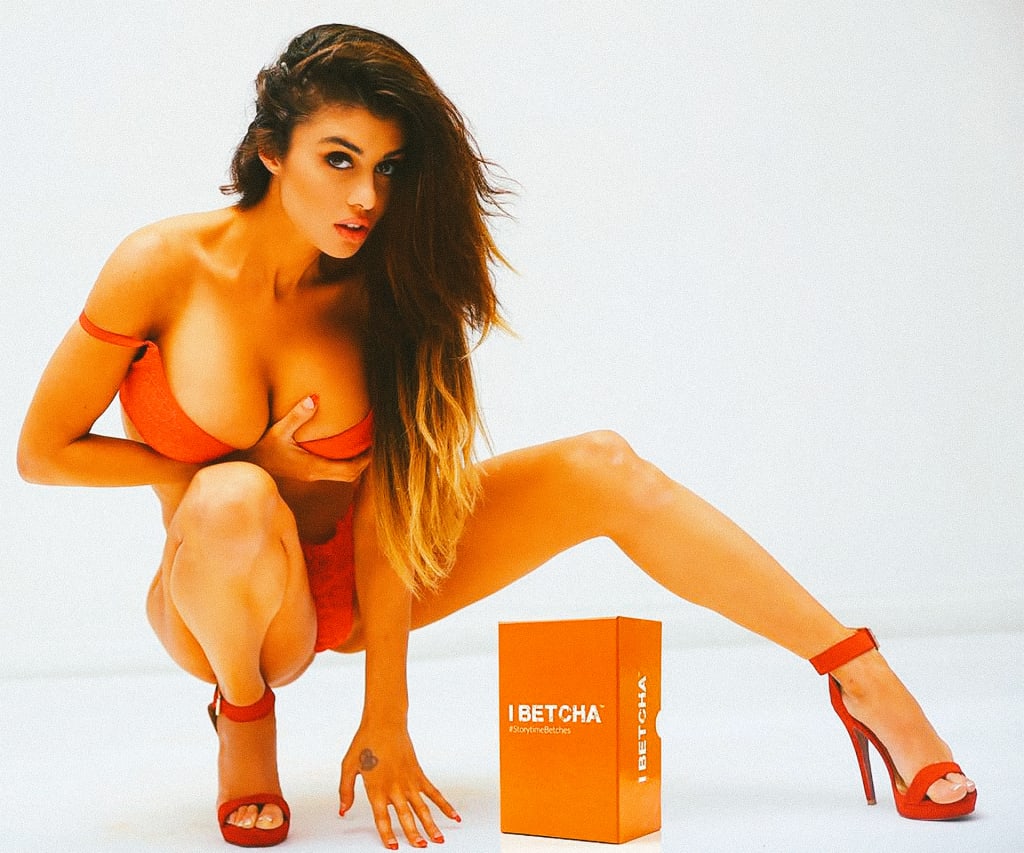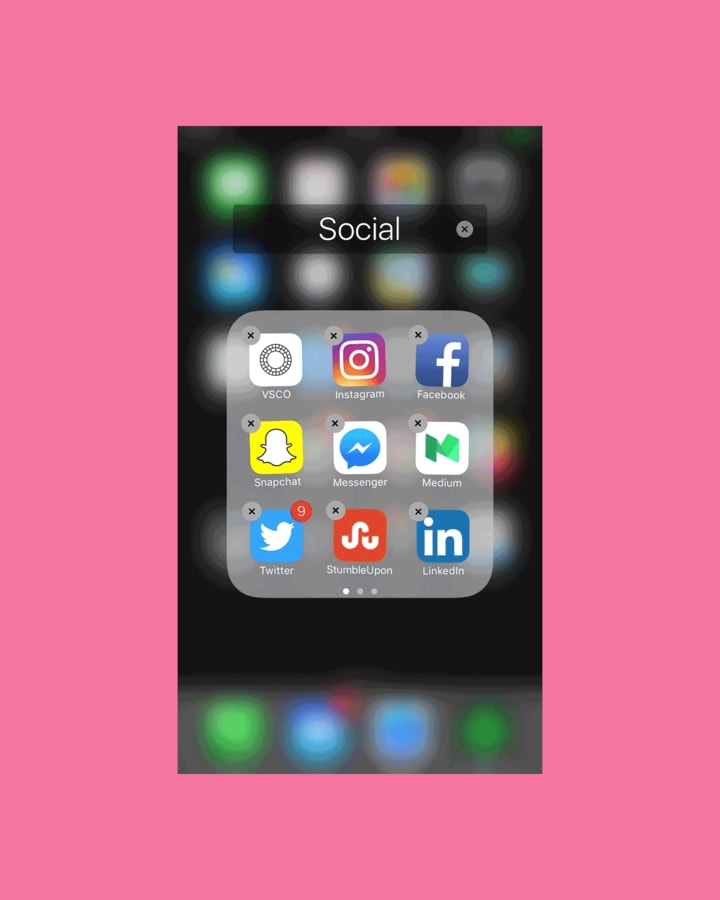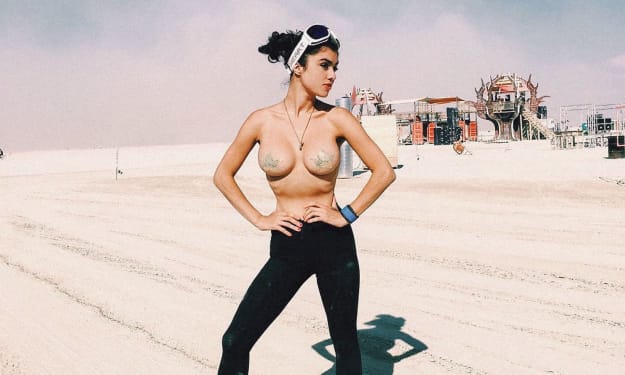Creating vs Consuming
Am I a hypocrite? What it really means to influence...

“Just as much as we see in others, we have in ourselves.”~William Hazlitt
Even if you have a million followers on Instagram, there is always someone with a million more. Hours spent looking at what everyone else is doing and comparing their lives to your own creates doubt and stifles true authenticity. With the advent of live Instagram streams, incessant Snapchat posts, and Facebook check-ins, we can see what everyone is doing at practically every second of every day. We can compare what we eat, what we wear, where we live, what books we're reading, trips we're taking, friends we're with, art we're making, jobs we're performing, shows we're watching, etc.
This constant comparison (even subconsciously) to others is influencing us on a deeper level than we allow ourselves to realize. We see people getting harassed for being overweight, for wearing a certain outfit, or expressing themselves in a particular way; although at times we might agree with them, we hide it for fear of falling victim to such bullying. It makes me wonder if I am even as good as “they” are. There are so many writers with successful books and blogs, is there even room for another?
In truth, it's nearly impossible to create authentically while your brain is constantly distracted, being pulled in a million directions a minute on social media by anything from a funny meme, to an Instagram model, a cute dog video, political quote, travel pic, news update, motivational clip, social invite, etc. This could be why over 52% more children are now being diagnosed with ADHD since 2003. Are these true diagnoses or merely children's brains having been negatively conditioned by the constant stimuli of social media?

“The chief cause of human error is to be found in prejudices picked up in childhood.”~Descartes
Social media teaches us to constantly buy products such as Kylie Jenner's lip gloss, "flat tummy” fit tea and ridiculously unhealthy compression corsets for an "hourglass shape." We think we need each of these products to feel some semblance of adequacy, but it's never enough to actually feel confident. There's no shortage of photoshopped Instagram models on our news feed incessantly staring back at us saying we're not good enough. We all know their bodies are photoshopped but still, we strive for this impossible ideal of “beauty." Rather than paying for college, girls are now buying butt implants and liposuction to achieve an unnatural hip to waist ratio. Unquestioningly, they adopt each influencers' ideologies because after all, "if 10 million people are following her and think she's right, she must be, right?”
Prior to social media, celebrities were clearly paid to be in a particular ad. Now, celebrities are subliminally endorsing products on their own personal social media accounts - making it very unclear to their followers if it's just an ad or if they genuinely believe in what they're promoting. Selena Gomez was recently called out for having the most advertisement affiliations on social media and interestingly enough she's also one of the most followed celebrities. With almost every influencer adopting this same monetization strategy as Selena, a culture of consumerism is slowly becoming ingrained.
Influencers not only promote products but also dating apps in a myriad of ways. False ideals of "perfect" relationships are perpetuated in influencers' daily "vlog" videos. These staged ten-minute videos hide the less glamorous reality unfolding in the other 23 hours and 50 minutes of their day. Comparing those seemingly "perfect" relationships to their own, followers are left consistently unsatisfied and turn to influencer endorsed dating apps for boyfriend/girlfriend upgrades. In spite of what such dating apps lead you to believe, forming successful relationships is not their end goal. Shady marketing strategies and exploitation of the "desire" center in our brain's limbic system ensures consistent app users.

“We have to dare to be ourselves, however frightening or strange that self may prove to be.”~May Sarton
Why are we all on social media so damn much? It's a negative feedback loop; we feel unfulfilled, so we seek the easiest coping mechanism available to us rather than actually doing the harder job of filling an emotional void. Mindless snacking is similar to that of mindlessly opening social media to deal with emotions such as boredom, loneliness, hunger, anger, exhaustion, and anxiety.
A distraction more insidious than snacking, social media actually exploits the "anger and fear" centers of our brain's limbic system. This is responsible for the "fight or flight response" that incites comments on posts and stimulates the release of dopamine. Our limbic system is in fact able to override the decision-making portion of our brain - with the dopamine the reward stimulus, we can have a full-on addiction to social media.
Additionally, Facebook and Instagram can create compounding emotional issues. For example, you're bored at work so you open Instagram and see a photo of your ex-boyfriend followed by a photoshopped Instagram model selling "fit tummy” tea. You begin the spiral of self-comparison and buy the "fit tummy" tea only to find a few days later that it doesn't work. So you buy the next product the same photoshopped Instagram model is now selling (a tummy tucker waist corset), which you later also find ineffective and distract yourself with Instagram yet again only to see another photo of your ex-boyfriend with a hot new girlfriend. Effectively you've become more insecure, overwhelmed, lonely, and behind on work after using social media and now need to spend even more time working to pay for all the useless products you accumulated. While working overtime the next day you again distract yourself with social media and the endless cycle continues.
It's a negative feedback loop, which is why Americans check their phones on average 46 times a day.

“When you're socially awkward, you're isolated more than usual, and when you're isolated more than usual, your creativity is less compromised by what has already been said and done. All your hope in life starts to depend on your craft, so you try to perfect it. One reason I stay isolated more than the average person is to keep my creativity as fierce as possible. Being the odd one out may have its temporary disadvantages, but more importantly, it has its permanent advantages.”~Criss Jami, Killosophy
Social media does, however, have its benefits. It can help form support groups for people with illnesses and foster symbiotic relationships resulting in greater technological advancements. It can also be a catalyst for protest movements such as the recent Occupy Protests and the Arab Spring, as well as enabling resistance formed against oppressive governments as seen in Ukraine and Hong Kong. Therefore, you should not delete Facebook and Instagram but rather greatly decrease time spent consuming them.
While addressing the annual meeting of the National Academy of Sciences in 2009, President Obama encouraged young people simply “to be makers of things, not just consumers of things," perhaps foreseeing the trajectory of social media's negative impact on society in this capacity. However, I must confess to being a complete hypocrite as I am an "influencer" myself, promoting products, posting half naked photos and mindless comedy videos perpetuating cultural archetypes. So, let's you and I, at this very moment, start to live a life mindfully CREATING rather than mindlessly CONSUMING!
“Until you make the unconscious conscious, it will direct your life and you will call it fate”~Carl Jung
About the Creator
Noel Leon
Random musings @noelleoninsta







Comments
There are no comments for this story
Be the first to respond and start the conversation.